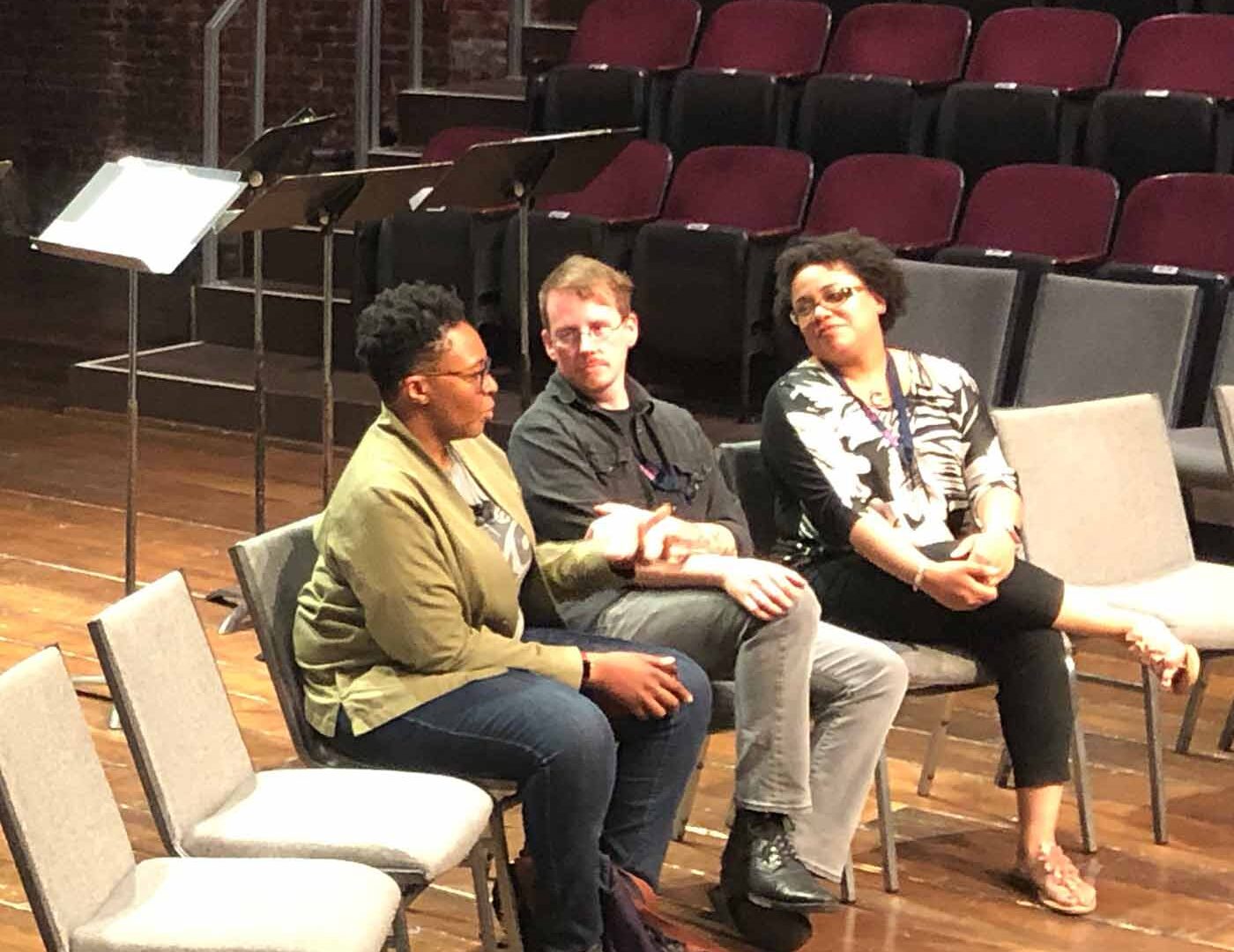Time to Read: 3 minutes
While the term “dramaturg” has been used since the late 1700s, the question “What is a dramaturg?” still persists. And this is likely because dramaturgy is too expansive to be contained within one definition.
Just as the design elements and direction of a play changes with each project, so too does the role of a dramaturg. Dramaturgs serve as the first audience member as well as mediator between production and audience. They are the historical excavators and researchers on a project. They examine how the embodiment of a character interacts with the words of the script. They help living playwrights bring their plays to life and serve as collaborators on classic texts. They analyze the structure, characters, and themes of a play. They translate plays into various languages to make texts more accessible to audiences. Dramaturgs, and their work, contain multitudes—ever-evolving practices, artistry, and personal style with the goal to make a production as accurate to the heart of the work as possible. As a dramaturg myself, my favorite description of a dramaturg is “a theater doula. You bring plays to life”—a term gifted to me by playwright Erika Phoebus.
Dramaturgy has been defined and redefined throughout the years. Dance dramaturg Katherine Profeta describes dramaturgy as oscillation: “an indeterminate zone between theory and practice, inside and outside, word and movement, question and answer.” Michael Chemers says that a dramaturg is a “member of the artistic team of a production who is a specialist in the transformation of a dramatic script into a meaningful living performance.” Mark Bly famously said his role as a dramaturg is simply, “I question.” And our own President and Co-Founder, Lue Douthit, says, simply, that dramaturgy is “the study of dramatic structure, and anything that has to do with the play is dramaturgical gold to be mined.”
Mark Bly famously said his role as a dramaturg is simply, “I question.”
What all these definitions have in common is the idea that the dramaturg is the curious questioner, the one who studies the structure and world of a play, who can help translate written word into an embodied performance, offering their knowledge, research, and practice to elevate dramatic structure. Like a swiss-army knife, dramaturgs are equipped with many tools, enabling us to assist in every part of the production experience. And while our labor is often invisibilized, it is a labor of love.
The Literary Managers and Dramaturgs of the Americas (LMDA) have been a foundational cornerstone for dramaturgs, particularly in elevating their work and making their practices, processes, and expertise more visible in the theater world. Founded in 1985, LMDA is a voluntary membership for dramaturgs and literary managers that uphold the idea that dramaturgy is central to the process of theater-making. LMDA is committed to affirming, supporting, and broadening the roles of the dramaturg, encouraging collaboration between dramaturgs, and promoting the exchange of information and resources. Their resources include an international database of dramaturgs and their specialties; job listings; listing grants and awards; sample contracts, and so much more.

Featuring (left to right) Marc Castellini, Castor Angus, Ashley Chodat, and Alex Vermillion.
LMDA also offers a yearly conference, held in a new location each year, that allows dramaturgs to convene, network, and share their latest research and practices. Play On Shakespeare is thrilled to be a sponsor of the 2024 LMDA conference this month and to also present a panel titled, “New Paths and Methods” featuring dramaturgs Liz Engelman (Measure for Measure) and Lezlie Cross (As You Like It, Titus Andronicus, Twelfth Night) as well as playwright Andrea Thome (Cymbeline). If you’ll be at the conference this year, stop by for a great conversation and a free copy of a Play On Shakespeare translation!
Want to know more about our dramaturgs?
Check out our Plays page, click your favorite play, and read about the dramaturg(s) on the project!
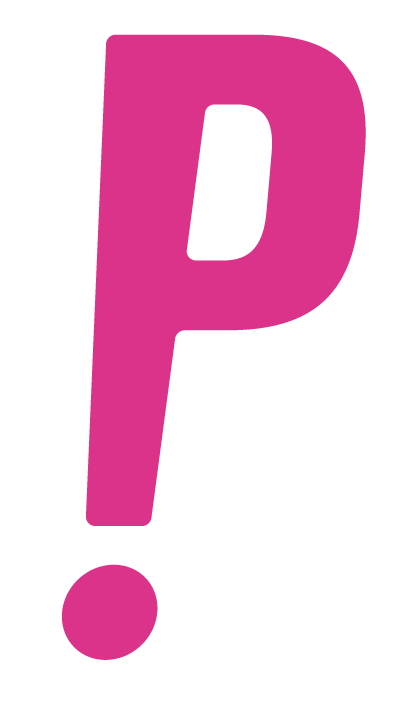
-
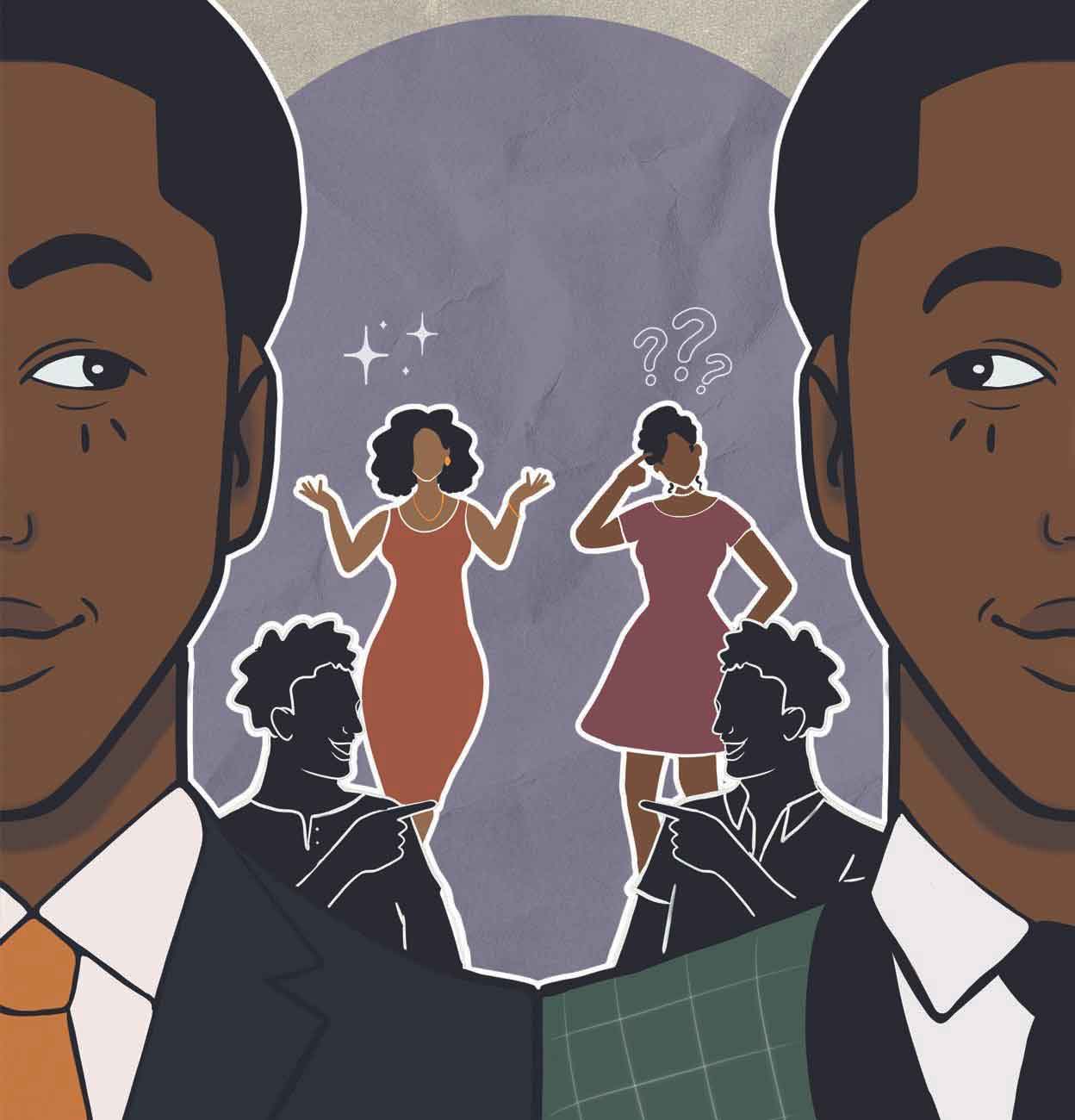
COMEDY is On the Road!
The Acting Company is about to embark on its U.S. tour of THE COMEDY OF ERRORS in a modern verse translation by Christina Anderson, in repertory with August Wilson’s TWO TRAINS RUNNING. -
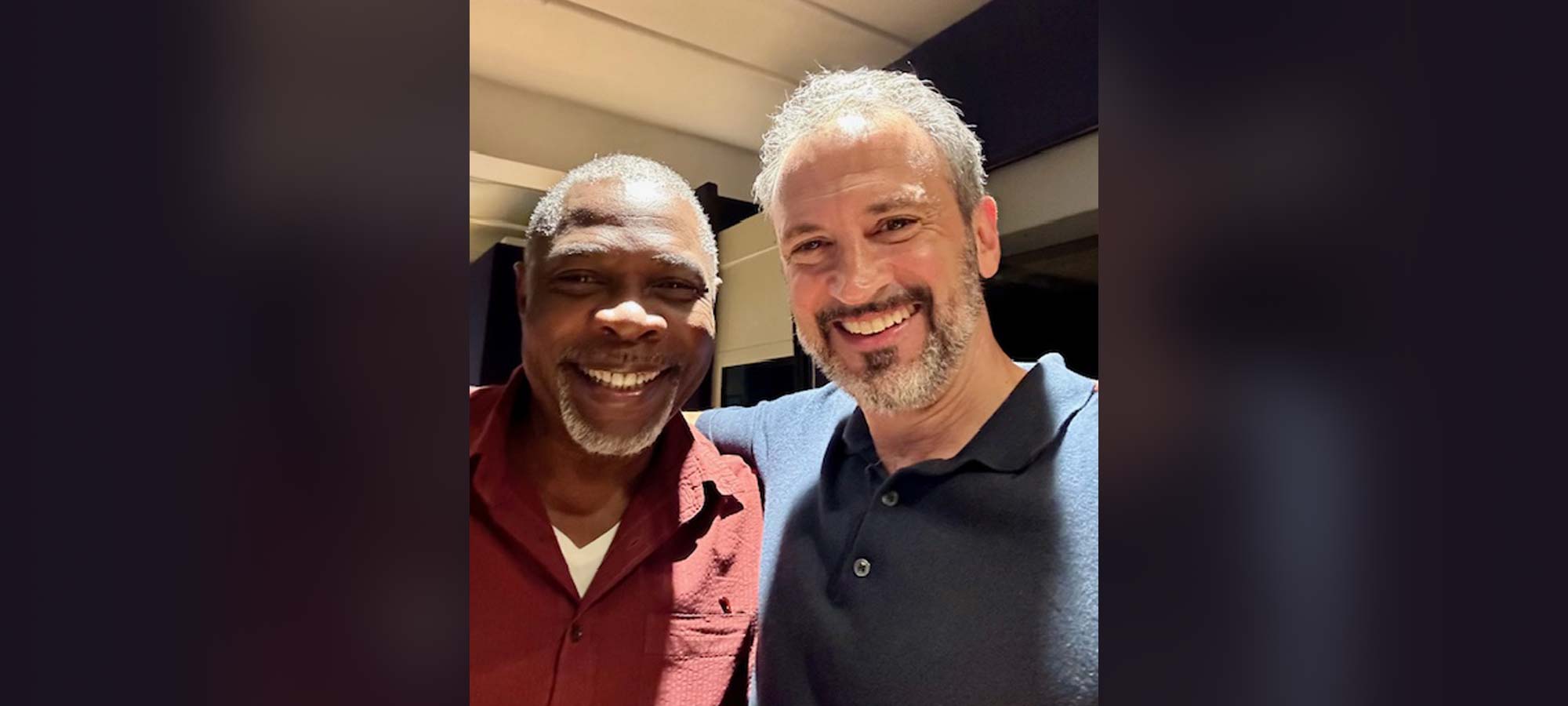
Making Play On Podcasts: An Interview with Michael Goodfriend
Play On Shakespeare interviews Michael Goodfriend, Head of Scripted Fiction at Next Chapter Podcasts, to talk all things Play On Podcasts! -
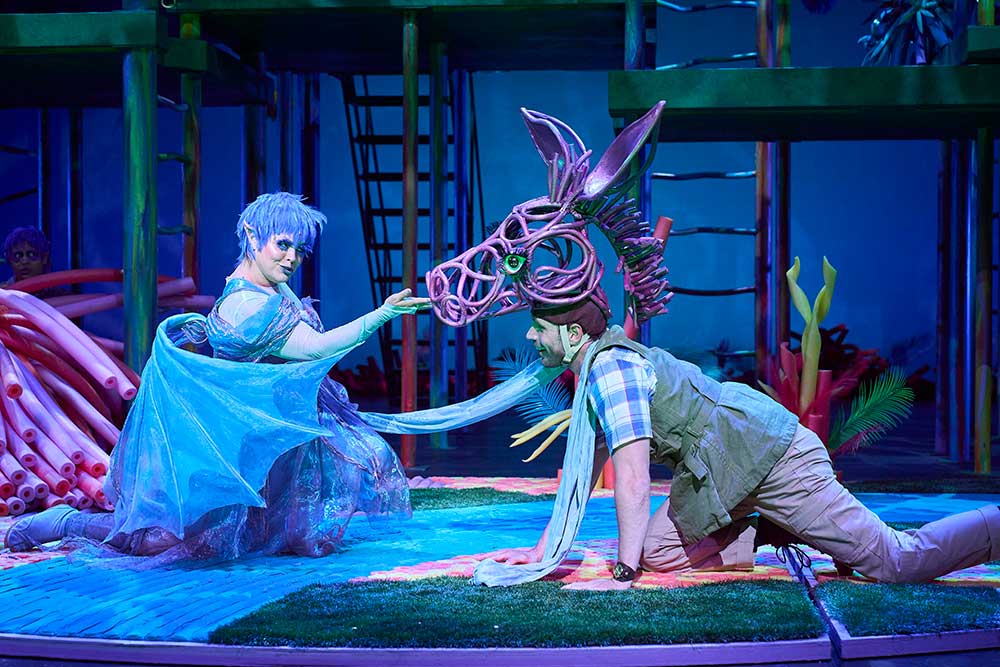
The Language of Midsummer
A MIDSUMMER NIGHT’S DREAM has had multiple productions this year—and one key takeaway has been the benefit of accessible language. -
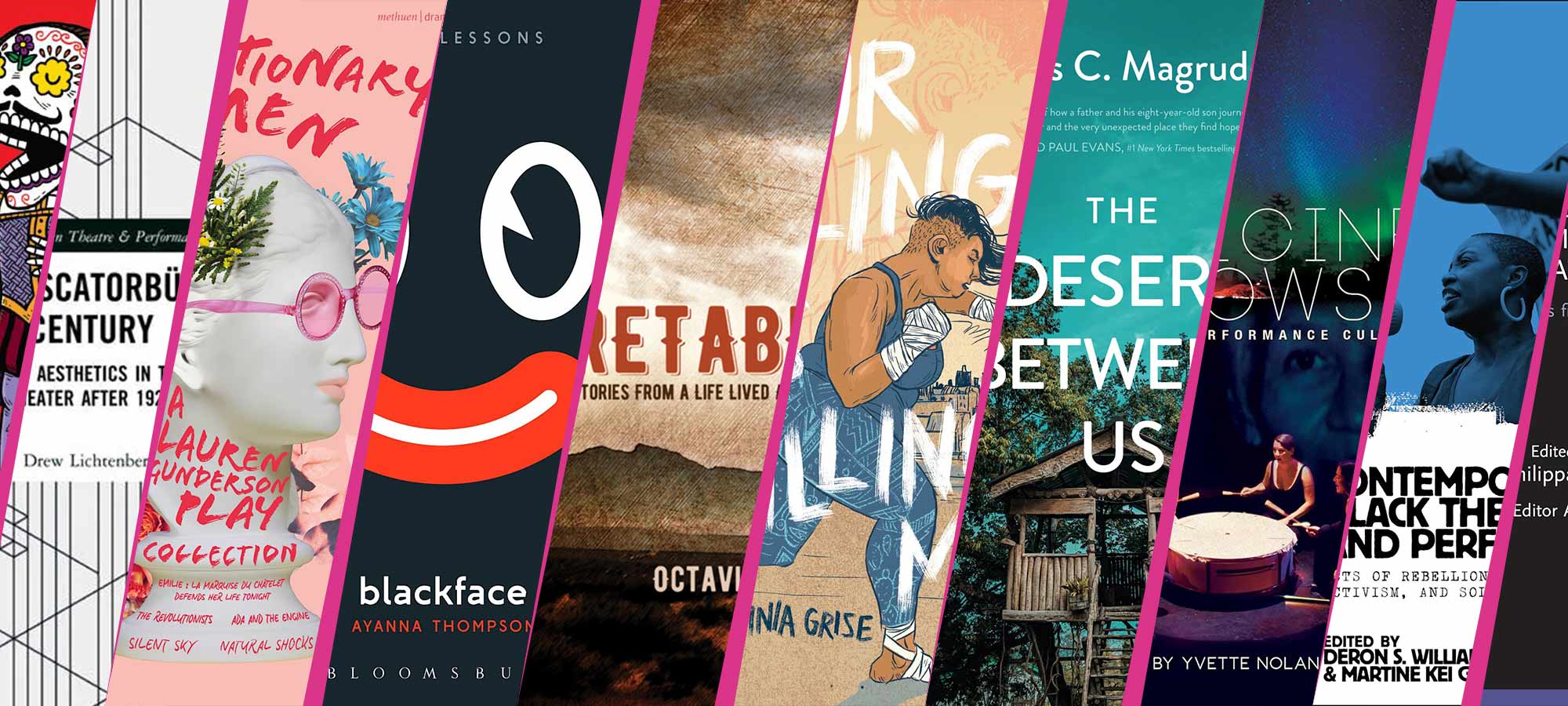
Level Up Your Reading List
This fall, Play On Shakespeare has the perfect reading list for you, with books written by some of our partner artists!

